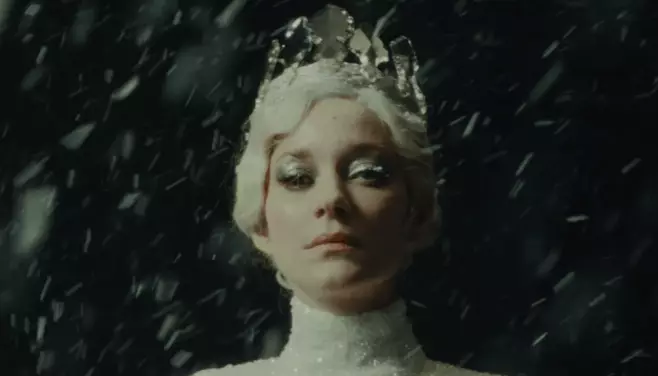Marion Cotillard has once again stepped into a character shrouded in complexity and allure as she portrays the enigmatic actress Cristina in “The Ice Tower” (“La Tour de Grace”). At the Berlinale Film Festival, she candidly admitted feeling a sense of intimidation in the presence of her younger co-star, Clara Pacini. Cotillard’s vulnerability is reminiscent of her own journey as an Oscar-winning actress; she revealed that despite her extensive experience, she found herself unable to gaze directly into Pacini’s eyes upon their initial meeting. This admission not only exemplifies Cotillard’s humility but also highlights the palpable charisma that Pacini commands.
What is particularly striking about Cotillard’s observations is the idea that their connection was almost instinctual—a feeling that transcended the typical boundaries of professional collaboration. The dynamics of their relationship seem to echo the very themes that the film aims to explore: the complex interplay between youth and experience, influence and admiration, and how these relationships can shape one’s artistic expression.
Delving deeper into her role, Cotillard elaborated on her innovative approach to embodying Cristina. She intricately crafted backstories filled with rivalries, failures, and the inevitable decline that an actress may face. This creative exploration is a testament to her commitment to character development; rather than simply performing lines, Cotillard invests in the psychology of her role. Interestingly, she aims to maintain an element of surprise throughout the filming process, allowing the organic interactions with her co-stars to influence her portrayal. This philosophy of embracing uncertainty can be viewed as an artistic gamble, yet one that undoubtedly adds richness to her performance.
In a captivating revelation, Cotillard expressed her desire to be surprised by her character’s reactions during shooting, which paints a vivid picture of her active engagement as an actress. By allowing her surroundings and fellow actors to influence her performance, she embodies a more authentic representation of Cristina. This approach invites audiences to witness a genuine evolution of the character in real-time, enhancing the film’s immersive experience.
Directed by Lucile Hadžihalilović, with a script co-written by Geoff Cox, “The Ice Tower” introduces viewers to a narrative steeped in fantasy, set in the 1970s. Cotillard’s Cristina is not just acting; she is involved in a film adaptation of Hans Christian Andersen’s “The Snow Queen,” where her character is central to an intricate tale of magic and melancholy. The interstitial layers of the story—where a runaway teenage orphan, played by Pacini, seeks refuge in a film studio and becomes enthralled by Cristina—suggest a meta-narrative about the nature of storytelling itself.
Cotillard’s reflections on Hadžihalilović’s adaptation reveal the depth of this connection. By replacing the traditional mirror of Andersen’s tale with a camera, the film invites scrutiny of contemporary society and the often problematic relationship we have with image and identity. Cotillard found this reinterpretation profound, hinting at the broader philosophical questions that “The Ice Tower” may raise about self-perception and the façades we craft.
A distinctive hallmark of “The Ice Tower” is its exploration of the film-within-a-film concept, where layers of reality and fiction coexist. Cotillard acknowledged the intricacies involved in playing an actress portraying an actress. This duality creates a labyrinth of self-reflection, as viewers are invited to grapple with the concept of identity and its endless permutations within the cinematic space. The film’s narrative architecture—images, perceptions, and the act of viewing itself—becomes a central theme.
Hadžihalilović’s choice to adapt “The Snow Queen,” a tale noted for its complexity and moral quandaries, further reinforces the notion that fairy tales often harbor deeper truths and fears. By weaving together such timeless narratives with contemporary issues, the film challenges audiences to reassess what they consume on screen, pushing the boundaries of storytelling.
As “The Ice Tower” garners accolades from its Berlin debut and prepares for its theatrical release in France on September 17, 2025, it is evident that both Cotillard and Hadžihalilović have crafted more than just a film—they have created a multifaceted dialogue about the nature of art, identity, and the intricate relationships that bind us. Through their collective visions, they remind us that even in the most enigmatic of characters, there exists a profound connection to the human experience.

